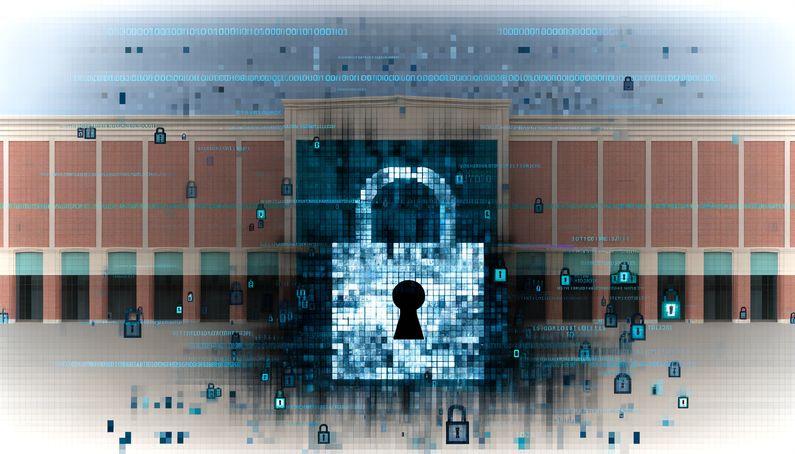
Financial Impact of Ransomware Attacks on Retail Giants: A Case Study of Fourlis Group
The ransomware attack on the Fourlis Group serves as a stark reminder of the vulnerabilities faced by retail giants. Operating IKEA stores across Greece, Cyprus, Romania, and Bulgaria, Fourlis Group experienced a significant financial setback, with losses escalating to €23 million by early 2025. This incident underscores the critical need for robust cybersecurity measures, especially as the attack coincided with peak shopping periods, further amplifying its impact on revenue and consumer trust.
Financial Impact of Cyberattacks on Retail Giants
Direct Financial Losses
Ransomware attacks can inflict significant direct financial losses on retail giants, as evidenced by the Fourlis Group incident. The attack on Fourlis Group, which operates IKEA stores in Greece, Cyprus, Romania, and Bulgaria, resulted in losses estimated at €20 million ($22.8 million) by the end of 2024. This figure increased to €23 million by February 2025, highlighting the ongoing financial repercussions of such cyberattacks. The direct financial losses stemmed from disruptions in store replenishment, primarily impacting the Home Furnishings segment and e-commerce operations.
Impact on Revenue and Sales
The ransomware attack on Fourlis Group had a pronounced impact on revenue and sales. According to Dimitris Valachis, the CEO of Fourlis Group, the security incident resulted in an estimated €15 million loss in IKEA sales operations by December 2024, with an additional €5 million loss projected into 2025. These figures underscore the vulnerability of retail giants to cyberattacks, which can disrupt sales channels and erode consumer confidence. The attack’s timing, just before Black Friday, further exacerbated the financial impact, as it coincided with a peak shopping period.
Cost of Cybersecurity Measures
In response to the ransomware attack, Fourlis Group invested in cybersecurity measures to restore affected systems and prevent future incidents. The company enlisted external cybersecurity experts to aid in the recovery process, successfully thwarting several subsequent attacks. While the exact cost of these measures is not disclosed, it is evident that significant resources were allocated to bolster cybersecurity defenses. This investment highlights the necessity for retail giants to prioritize cybersecurity to mitigate the risk of future attacks and protect their financial interests.
Long-term Financial Implications
The long-term financial implications of ransomware attacks on retail giants extend beyond immediate losses and recovery costs. The reputational damage caused by such incidents can lead to a decline in customer trust and loyalty, ultimately affecting sales and market share. Additionally, regulatory scrutiny and potential fines for data breaches can further strain financial resources. In the case of Fourlis Group, data protection authorities in Greece, Cyprus, Romania, and Bulgaria were notified, although no evidence of data theft or leaks was found.
Comparative Analysis with Industry Trends
The financial impact of the ransomware attack on Fourlis Group is reflective of broader industry trends. According to a report by CyberArk, nearly 90% of organizations were targeted by ransomware in 2024, with damage costs predicted to exceed $265 billion by 2031. The average ransom demand per attack exceeded $5.2 million in the first half of 2024, highlighting the substantial financial burden ransomware poses to organizations. Furthermore, a Chainalysis report indicated that ransomware profits plummeted by 33% in 2024, as victims increasingly resisted or negotiated lower ransom payments. Despite this, the persistently high attack levels suggest that ransomware remains a critical threat to retail giants and other industries.
Insurance and Risk Management
Insurance plays a crucial role in mitigating the financial impact of ransomware attacks on retail giants. Cyber insurance policies can provide coverage for direct financial losses, recovery costs, and legal expenses associated with data breaches. However, the increasing frequency and severity of ransomware attacks have led to rising insurance premiums and stricter underwriting criteria. Retail giants must carefully assess their risk management strategies and insurance coverage to ensure adequate protection against cyber threats.
Future Outlook and Recommendations
The financial impact of ransomware attacks on retail giants underscores the need for proactive cybersecurity measures and robust risk management strategies. Retail giants should invest in advanced threat detection and response capabilities, employee training, and regular security audits to enhance their resilience against cyber threats. Additionally, collaboration with industry partners and government agencies can facilitate information sharing and strengthen collective defenses against ransomware attacks.
In conclusion, the ransomware attack on Fourlis Group highlights the significant financial impact such incidents can have on retail giants. By understanding the direct and indirect costs associated with cyberattacks, retail giants can better prepare for and mitigate the financial risks posed by ransomware.
Final Thoughts
The ransomware attack on Fourlis Group highlights the profound financial and operational challenges posed by cyber threats to retail giants. As detailed in the CyberArk report, the prevalence of such attacks is a growing concern, with nearly 90% of organizations targeted in 2024. The incident emphasizes the importance of investing in cybersecurity and risk management strategies to safeguard against future threats and maintain consumer confidence.
References
- BleepingComputer. (2025). Ransomware attack cost IKEA operator in Eastern Europe €23 million. https://www.bleepingcomputer.com/news/security/ransomware-attack-cost-ikea-operator-in-eastern-europe-23-million/
- CyberArk. (2024). Ransomware tracker. https://spin.ai/resources/ransomware-tracker/
- Infosecurity Magazine. (2024). Ransomware attacks record payoffs. https://www.infosecurity-magazine.com/news/ransomware-attacks-record-payoffs/



